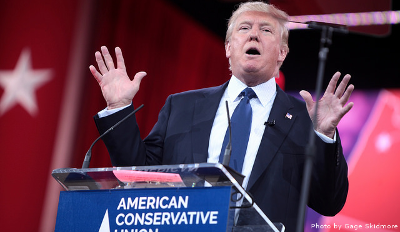
Donald Trump campaigned on his opposition to free trade agreements, such as the Trans Pacific Partnership (TPP) and North American Free Trade Agreement (NAFTA), but his rhetoric should not distract voters’ attention away from the ways in which he and many of his business and political allies have undermined workers’ rights. Even if Trump’s stated intention to withdraw the United States from the TPP is a welcome move, we believe the defeat of the TPP is thanks to national grassroots organizing that forced politicians on both sides of the aisle to back away, and that Trump’s global business record and actions to date should give rise to skepticism that he intends to live up to his rhetoric.
Free trade agreements have caused real, measurable hurt to American workers, and their benefits to workers in other signatory countries, such as Mexico, Honduras, or Peru, have also been spotty. However, ending free trade agreements, some of which actually provide leverage for improving labor laws, is not sufficient to stop the global trend of increasing inequality. That will require a broad spectrum of legal and policy reforms that foster transparency, accountability and responsible oversight of global corporate accountability, in addition to stronger labor rights protections and enforcement within each country. Trump’s placing the blame on badly negotiated trade agreements conveniently ignores the fact that U.S. employers have actively undermined American workers’ rights by lobbying against minimum wage increases and supporting right to work laws.
Despite his rhetoric as the candidate who will help American workers, Trump’s business practices and early glimpses into his strategic agenda indicate that he is moving toward policies that would deepen, rather than ease the harms of an unfettered global market place and further weaken labor law protections for American workers.
As a businessman, Trump epitomized many of the worst practices in global trade. His garment line is produced in a sprawling, secretive global supply chain that squeezes profits to the top of the value chain at the expense of producers and, “compel[s] countries to loosen laws governing working conditions, tax policy, and professional licensing across the globe.” Though he keeps his production facilities secret, investigative journalists have linked his products to facilities that endanger workers. In his direct operations, he has refused to pay contractors, sometimes forcing small businesses to close in protracted legal battles over sums nominal for a billionaire but vital to the small businesses who complete the work, and has denied hourly workers overtime pay they have earned.
Trump has also shown an antipathy for unionization that illegally violates workers’ right to organize, and with President Trump soon able to appoint members of the National Labor Relations Board (NLRB), it may become even more difficult for unions to organize nationwide. The majority of his cabinet selections to date are drawn from wealthy businessmen and Wall Street elite, including Andy Puzder, CEO of the company that owns Carl’s Jr. and Hardee’s restaurants, for Secretary of Labor. Puzder is a fierce advocate of a franchise model that decreases corporate accountability for workplace conditions; the U.S. Department of Labor found wage and hour violations in 60% of Puzder’s restaurants. Additionally, important laws to curb U.S. corporate abuses abroad, such as the Foreign Corrupt Practices Act, may not be as rigorously enforced.
Despite these challenges, organizing at the local level is providing a blueprint for how we can unite to ensure all workers, everywhere, gain improved conditions. Minimum wage is an area where Trump has waffled, but on Election Day, people voted to raise the minimum wage in four states. Already, the movement for a $15 an hour minimum wage has earned a stunning $61 billion in compensation for some of the lowest paid U.S. workers. ILRF continues to work in coalitions to organize actions at the local level that bring to change at multinational companies like H&M, Walmart, Gap, Target and others.
In the next four years, we must hold Donald Trump, and the Republican Congress swept in with his election, accountable for their promises to working Americans. We must also use this time to build coalitions in support of solutions that place global people power above global corporate power. This means we need to continue advocating for better minimum wages across the U.S. and in countries producing goods for the U.S. market, expose labor rights abuses anywhere they appear in Trump enterprises, and work with our global allies to hold the Trump administration to high international standards for workers’ rights.

